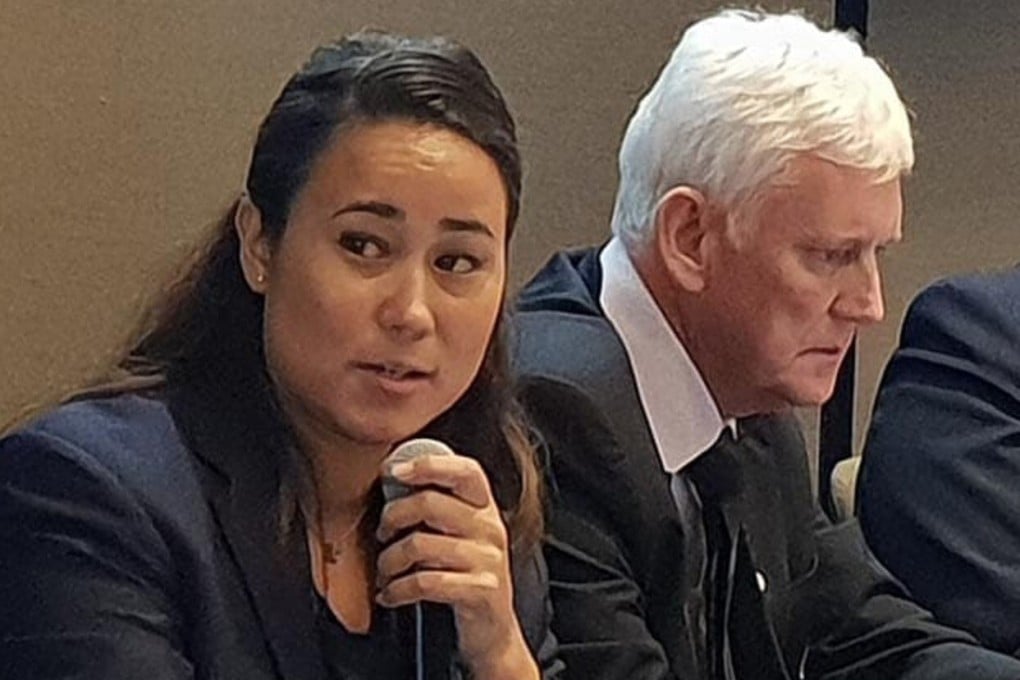How Filipino Ada Milby went from playing American football with the boys to the top of women’s rugby in Asia
- The 36-year-old suffered discrimination after making the boys’ team at her high school in Tipp City, Ohio, before discovering rugby at university
- The mother of two is still an active player at 15s and sevens and is on the council of the Philippines union, Asia Rugby and World Rugby

Filipino rugby player and administrator Ada Milby said she was “blissfully naive” when she became the first girl to suit up for her high school’s American football team.
Growing up in the small town of Tipp City in Ohio, US, she was shielded from many of the life challenges faced by women such as gender bias, sexism and the general aversion of teenage boys to being floored by a girl in front of their friends.
Especially a dewy-eyed, daddy’s girl whose athletic feat until then was 12 years as a highly competitive figure skater – a sport that has a poor history of producing American football players.
But inspired by her father, who told her she could be anything she wanted, Milby made it on to her high school team. She would later take up rugby, serve 10 years with the US military – including a tour of Iraq – before settling in the Philippines and forging a career in the sport as a player and respected administrator at national, Asia and World Rugby levels.
Milby is secretary general of the Philippines Rugby Union, a member of the Asia Rugby executive body and the first woman to become part of World Rugby’s governing council. At 36, the mother of two is still an active player for the Philippines 15s and sevens team, winning a Sea Games silver medal in 2019.
American football was her introduction to contact sports and she still has no idea what made her try out for the team. But she said it was an unpleasant season playing alongside the boys.